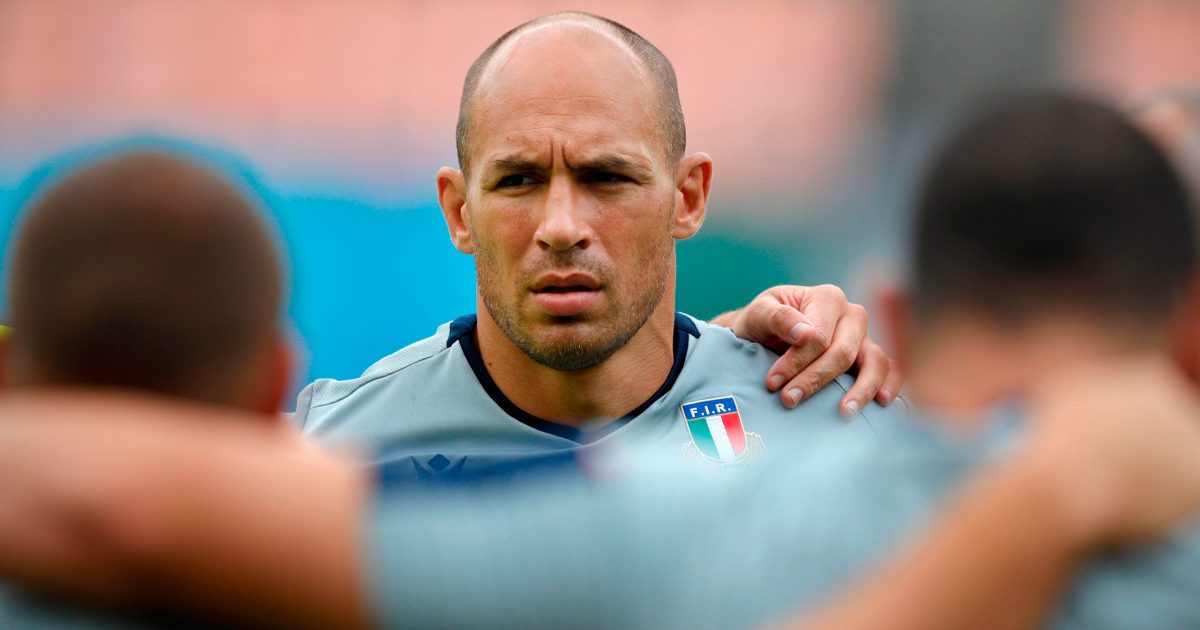Five legends to be inducted into World Rugby Hall of Fame

Two Test centurions, a pair of former World Rugby Sevens Players of the Year and one of the finest scrum-halves to represent the All Blacks will be inducted into the World Rugby Hall of Fame on Sunday.
Italian icon Sergio Parisse, Scotland’s most-capped player Donna Kennedy, sevens greats Emilee Cherry and DJ Forbes, and former New Zealand captain Chris Laidlaw will become the latest legends of the game to be recognised at the World Rugby Awards in Monaco.
The World Rugby Hall of Fame recognises those who have made an outstanding contribution to the game throughout their careers, and their inclusion takes the number of inductees since 2006 to 171.
World Rugby Chair Brett Robinson said: “This Sunday, we will be welcoming five legends from four nationalities into the World Rugby Hall of Fame. These inductees, representing both sevens and 15s, have graced our sport with their remarkable talent, enduring dedication, and performances at the highest level.
“On behalf of World Rugby, I extend heartfelt congratulations and gratitude to them for their incredible achievements and the inspiring legacy they have left, which continues to resonate throughout the game.”
Fellow World Rugby Hall of Fame inductee and Chairman of the Hall of Fame panel John Eales said: “Again, this year’s World Rugby Hall of Fame inductees showcase rugby’s values, diversity, and evolution.
“The class features two rugby sevens stars, marking another Olympiad, and three legends from different eras. Notably, congratulations to Italy’s first-ever inductee, Sergio Parisse. Sergio’s selection celebrates a brilliant career and highlights Italy’s growing achievements amid rugby’s expansion worldwide.”
At the end of a year in which the Olympics took centre stage, and helped drive attendance records, two of the shortened format’s greatest players have been recognised.
Emilee Cherry burst onto sevens scene in 2012 and was a vital cog in the Australia team that won gold at Rio 2016. She later became only the second woman to score 100 series tries.
Former All Blacks Sevens captain DJ Forbes was one of the most recognisable faces on the circuit between 2006 and 2017, wearing the captain’s armband for nine years and racking up six series titles, a Commonwealth Games gold medal and a Rugby World Cup Sevens title.
Only three men’s players, at the time of writing, have won more Test caps than Italian great Parisse, who represented the Azzurri 142 times between 2002 and 2019 and is considered to be one of the best No8s to ever play the game.
Meanwhile, no male or female player has represented Scotland more times than Kennedy, who like Parisse appeared at five Rugby World Cups.
Kennedy won 115 caps during a 17-year international career and was synonymous with the Scotland women’s team for the first two decades of its existence.
Having made his All Blacks debut at just 19, Laidlaw, the fifth and final Hall of Fame inductee in 2024, won 20 caps for New Zealand and played a further 37 tour and non-cap matches across six and a half years.
Laidlaw later captained Oxford University to a victory against the touring Springboks and went on to have a successful career as a diplomat, politician and broadcaster.












































































All these Hall of Fame inductees are only from tier one Nations if I seen that right, so...Jerry Tuwai one of the 7s greatest players from Fiji who won 7s World Cups, multiple HSBC 7s series, double gold and a silver Olympic medalist is well decorated to be considered as an inductee in my book. So World Rugby, do you undermine the achievement of rugby players from non tier one countries? It seems that way.....just a concern.
I don't think Tuwai is retired. The hall of fame has never inducted an active player.
This year only 5 people are being inducted, so many nationalities will miss out. Who do you think doesn't deserve it?